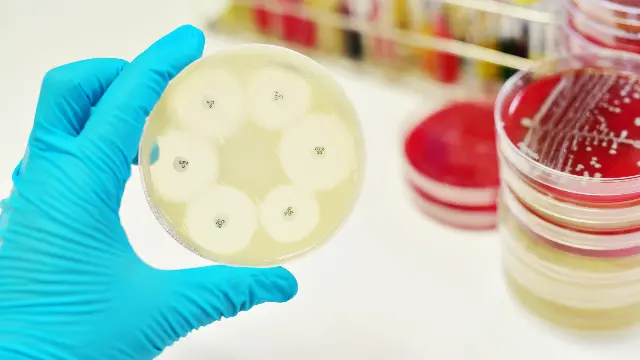International research collaboration to tackle antimicrobial resistance by tapping into South Africa’s rich biodiversity
 Cape Town | A three-year collaboration between South African and UK based researchers is set to tackle antimicrobial resistance by tapping into South Africa’s rich biodiversity to discover and accelerate the development of new antibiotics.
Cape Town | A three-year collaboration between South African and UK based researchers is set to tackle antimicrobial resistance by tapping into South Africa’s rich biodiversity to discover and accelerate the development of new antibiotics.
The project is funded by the South Africa–UK Antibiotic Accelerator Drug Discovery Programme – an initiative of the South African Medical Research Council (SAMRC) and United Kingdom Medical Research Council (UKMRC) that was launched in April 2019 with the aim of harnessing South Africa’s biodiversity to discover treatments for antimicrobial resistance (AMR) and to establish a global drug discovery network focusing on developing new drug candidates. The launch was followed in June the same year, by the South Africa-UK AMR Drug Discovery Partnership workshop that took place in South Africa – bringing together leading researchers from both countries and multiple research disciplines, to better understand the key microbial targets of public health concern in South Africa.
The programme will establish a collaborative South African-UK antibiotic accelerator with hubs in both countries and integrated opportunities for capacity building while also seeking to sustain and develop the existing collaborations, initiatives, databases, novel chemistry and compound libraries, and propose robust governance and management structure.
In addition, the programme will establish a global drug discovery network focusing on developing new drug candidates for the World Health Organization (WHO)’s priority ESKAPE pathogens (Enterococcus faecium, Staphylococcus aureus, Klebsiella pneumoniae, Acinetobacter baumannii, Pseudomonas aeruginosa, Enterobacter spp.), that are most commonly associated with AMR, and gonorrhoea, which is also a global AMR research priority.
In July 2019, a call for applications and submission of proposals was issued to South African and UK researchers working on pre-competitive antibacterial drug discovery following which two Newton AMR awards were made this year – to Professors Rosemary Dorrington from Rhodes University and Anabella Gaspar from the University of Pretoria, both leaders in their fields, with the first Newton health project funded at an Eastern Cape university.
Professor Dorrington, her UK collaborator, Mathew Upton from the University of Plymouth and their team will focus on harnessing natural product diversity to combat multi-drug resistance and identify novel hit compounds for lead optimisation in future projects. The project focuses on Gram-negative members of the ESKAPE group and Neisseria gonorrhoea, as these are among the leading AMR threats in South Africa.
Through a multidisciplinary approach, integrating research projects and training workshops across South African and UK centres of excellence in natural product research, the team will establish an antimicrobial discovery hub to generate new knowledge, establish new infrastructure, expand cutting-edge research capacity to partner institutions, and comprehensively rejuvenate the discovery of novel antibiotics from natural product sources.
Professor Gaspar on the other hand, her collaborator, James Mason from King’s College London, and their team are investigating the development of antimicrobial peptides against Gram-negative antibiotic resistant pathogens. The team aims to accelerate antibiotic drug discovery to address Gram-negative drug resistance in South Africa and establish a sustainable legacy in AMR research in South Africa and will also improve the success of pre-clinical efficacy studies by transforming hit-to-lead and lead optimisation studies of antimicrobial peptides (AMPs), compounds with bactericidal, immunomodulatory and anti-biofilm capabilities.
Another important aspect of the project is the team’s evaluation of the AMP leads for the development of novel antibiotics for topical and intravenous applications.
Both the Rhodes University and University of Pretoria projects are supported by the University of Cape Town’s H3D, headed by Professor Kelly Chibale. The H3D team will support the screening of AMR lead compounds and capacity development. Prof Chibale is also Director of the SAMRC’s extramural research unit (EMU), Drug Discovery and Development Research Unit.
These projects are funded for three years to ultimately deliver lead candidates from South Africa’s rich biodiversity to combat AMR, grow the next generation of AMR researchers, build much needed capacity and infrastructure, and establish a hub and network through which AMR research can be nurtured and thrive.
NOTE TO THE EDITOR:
The SAMRC is dedicated to improving the health of the people in South Africa, through research, innovation, development and technology transfer. The scope of research includes laboratory investigations, clinical research, and public health studies.

